Retirement in Spain
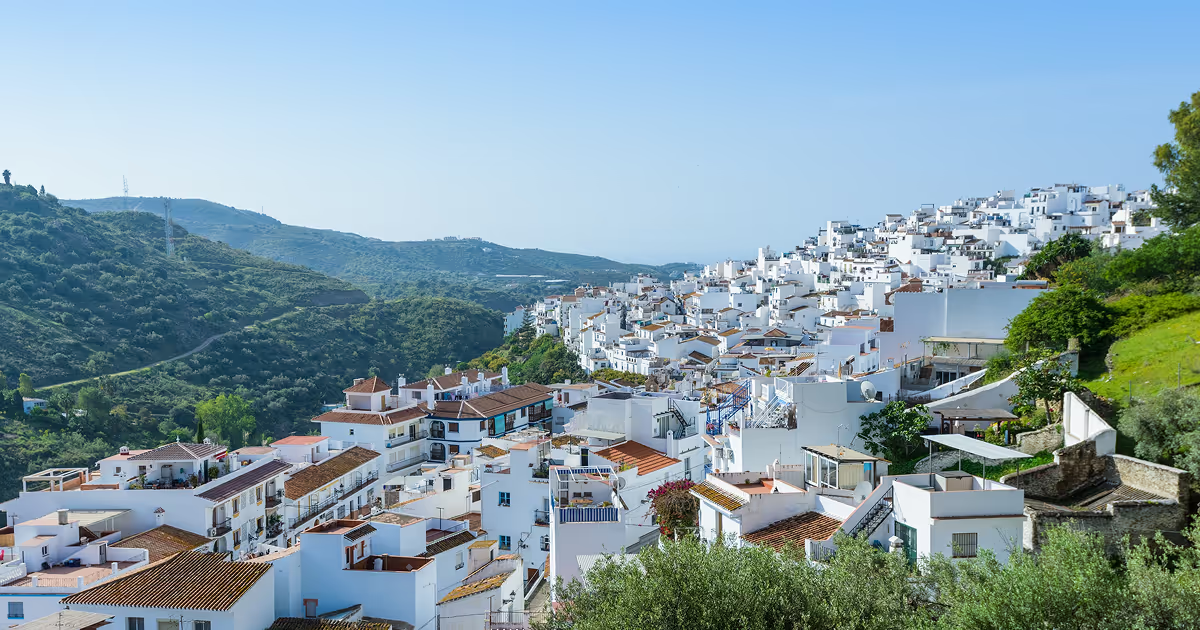
What better way to enjoy your golden years than to retire to Spain? It's easy to see why British citizens are considering a Spanish retirement. The country has a warm climate and a cosy, laid-back attitude that instantly makes you feel at home, even if you belong to one of the many expat communities in Spain.
Ultimately, it seems to be the perfect spot to enjoy your retirement. But since Brexit, moving to Spain requires much more planning than it used to.
The days when you could simply relocate are long gone; nowadays, UK nationals have to think about visas, residence permits, and private health insurance.
Is it still possible to plan to retire in Spain as a non-EU citizen?
Absolutely, but you need to make sure you understand all the requirements before you can enjoy the sunny days of Andalusia or Costa del Sol.
In this useful guide, we provide tips on everything you need to know before deciding to head to Spain and make the most of your tax-efficient retirement in an EU country.
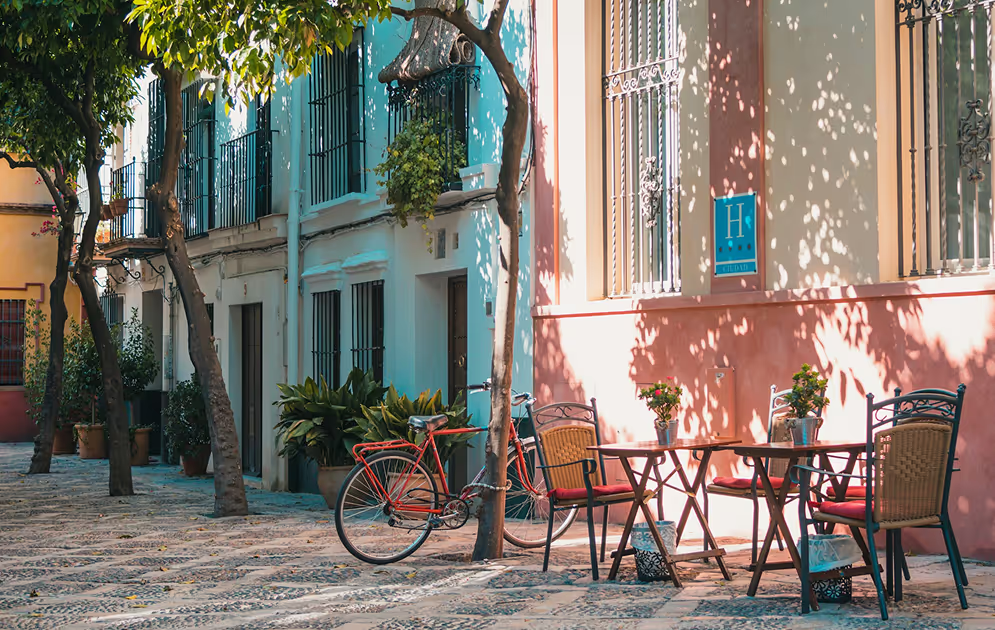
Which Spanish Retirement Visas Are Available?
The first step when considering a Spanish retirement is to address the issue of a residency permit. Ultimately, the UK is no longer part of the EU, which means British retirees can't stay in Spain indefinitely without the correct visa.
You can, however, as a UK passport holder, enter Spain for 90 days in any 180-day period without filling up a national visa form. This is great to test the waters and see if you enjoy it there. But if you decide to stay and live in Spain, you need to consider the best retirement visa option.
The Spanish Non-Lucrative Visa
The most common route for retirees is Spain's the non-lucrative visa. This visa is designed for those who want to live in Spain without working. The visa has specific financial requirements: your financial resources must amount to at least €28,800 (for the 2025-2026 tax year). It is worth checking, as the financial requirements may vary slightly from one year to another.
The non-lucrative visa also requires applicants to take private health insurance. There are options for obtaining public health insurance in Spain; we will discuss them later. Remember that, for this visa, private healthcare is crucial.
What happened to the Golden Visa?
If you've been planning to use the Golden Visa to retire to Spain, this option is no longer available. The Spanish government officially retired the Golden Visa in April 2025. This visa was targeted at investors, requiring a minimum investment of €500,000 in the local property market. Applicants could receive a residency permit and even Spanish citizenship in exchange for that level of investment.
Family Reunification Visa
This visa is only valid if you already have family established in Spain. With a family reunification visa, you will still be required to demonstrate sufficient financial means if you seek to retire in Spain. Here again, it is essential to keep track of requirements, as they evolve regularly to reflect current living costs.
The Digital Nomad Visa
Although the digital nomad visa is designed for remote workers rather than retirees, it can appeal to those taking partial retirement. This is also a great way to establish yourself in your expat community before deciding to stay. It's not the best visa for retirement, but if you wish to remain professionally active in some capacity while living in Spain, this could be an option to consider.
This visa allows some work activity, provided your income primarily comes from outside Spain.
Documents and preparation timeline for UK citizens and family members
How long before you apply should you start gathering all the documents?
You should consider starting the process 3 to 6 months before applying. The Spanish consulate requests a range of documents on a case-by-case basis.
As a general rule of thumb, you will need to ensure that you have all the following before applying for a retirement visa:
- a valid passport
- financial means proof (local or worldwide income)
- recent bank statements
- a medical certificate
- criminal record clearance
- private insurance (health)
- proof of accommodation
Healthcare and Insurance for British Retirees in Spain
The Spanish healthcare system is renowned for its high quality, with a wide network of fully equipped hospitals across the country. With high standards of care and short waiting times, it's easy to see why many British retirees may prefer this service to the NHS.
One thing to remember, though, is that there is no longer an arrangement between the Spanish healthcare service and the UK's national health service in a post-Brexit world. That's why you need private health insurance when you retire to Spain: the public service doesn't cover non-EU citizens.
The S1 certificate
The S1 scheme gives you direct access to Spain’s public healthcare. The UK will cover the cost of treatment; you register the S1 with the Spanish authorities and sign up with your local public health centre. Once you are registered, you have access to public healthcare, which covers GP appointments, hospital treatment, and emergency services.
Note: Standard public health coverage doesn't include dental care and some medical prescriptions.
Some UK retirees start on private insurance to meet visa rules, then switch to the S1 entitlement later.
Private health insurance
Most British people planning to retire in Spain apply for the non-lucrative visa, which requires comprehensive private health insurance.
Policies must cover the full duration of the visa and meet Spanish standards for emergency care, hospitalisation, and specialist treatment. Costs vary depending on age, pre-existing conditions, and the level of cover. As a rule of thumb, most people pay between €100 and €200 per month.
It's not uncommon to keep your private insurance even after joining the S1 scheme, as this gives you access to faster appointments and also English-speaking assistance, which can be helpful.
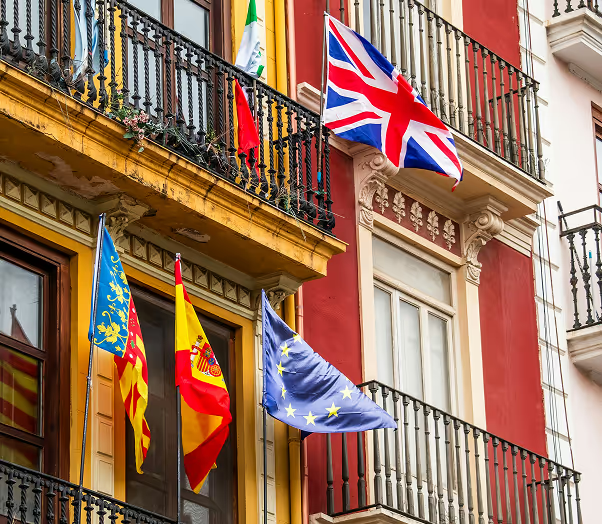
Cost of Living When Retiring in Spain
The good news: Overall, Spain has more affordable day-to-day life.
Nevertheless, you should still budget carefully, especially for those who are on a non lucrative visa as they'll need to meet financial requirements for each visa renewal.
Is Spain cheaper than the UK?
Yes, absolutely. The cost of everyday essentials is definitely lower in Spain.
This will include groceries, public transport, eating out, and even leisure activities.
Utility bills are also cheaper as an average, but it can vary region by region.
Housing is by far the biggest financial advantage. A lot of British retirees find they can afford bigger accommodations and in better locations for the same money in Spain than they would have in the UK.
Of course, like everywhere some areas are more popular and therefore more expensive. We'll explain more about this in a later point.
Regional differences
While living costs are cheaper, they can vary a lot across the country, and this is something to consider when you retire to Spain.
Typically, island regions and smaller towns are on the most cost-affordable side of things.
In comparison, if you pick a hotspot like Alicante and Barcelona, you are going to face higher prices for housing, dining, and medical services.
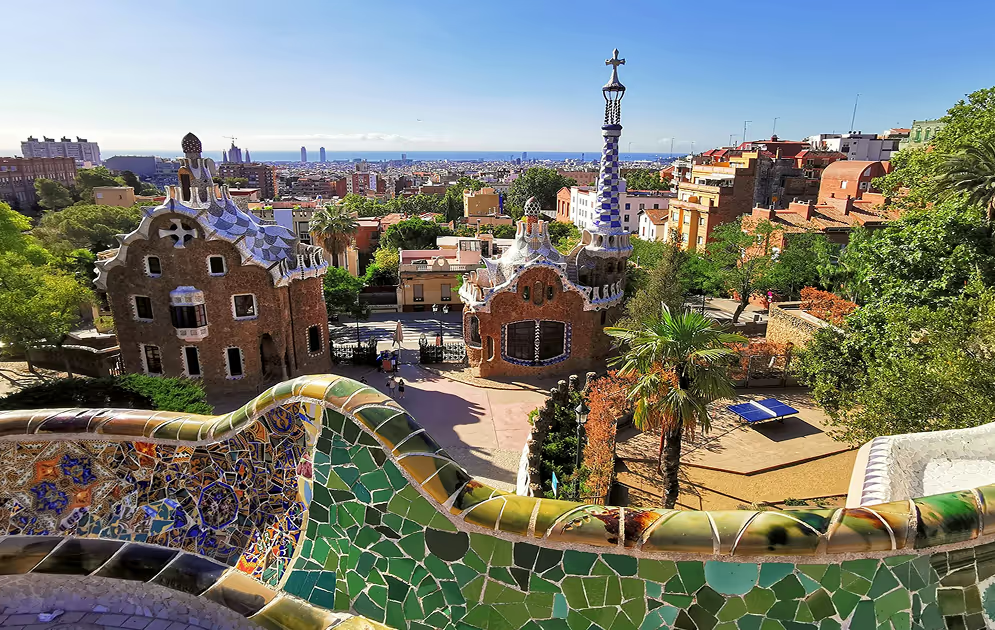
Are there hidden costs?
While there are not specifically hidden or non-disclosed costs, there are some administrative fees that newcomers may overlook.
Some of the most common money-related mishaps include:
- some properties have community charges
- if you work with a gestor, you will have to budget for their fees
- document renewals are not for free
- some regions are not viable without a car, so if you're planning to ditch vehicle ownership, you need to be strategic about your location
- if you end up travelling back to the UK for family visits, travel costs can get high very fast
- exchange rate apply for international assets, so you may end up with less money than expected
Financial Planning for Retiring in Spain
No matter how much more budget-friendly the country is compared to the UK, you can retire to Spain without financial planning.
Here's why: The way your income, pensions, and investments are taxed in Spain differs from the UK. So, while you may know what to do as a UK resident, things work differently when you become a Spanish tax resident. So, you want to understand how the system works to protect your tax advantages.
Becoming a Spanish tax resident
There is no discussion about this. When you live in Spain for more than half a year in a tax year, you receive tax residency. In Spain, tax residency is determined by the 183-day rule. If you spend more than 183 days in the country within a calendar year, you are considered a tax resident for the tax year.
Other factors are also considered when determining whether you are a tax resident. The Spanish authorities will check where your centre of vital interests is, aka where your family and financial ties are strongest.
Do retired expats pay taxes in Spain?
Yes. they do. All tax residents must declare and pay tax on their income, including international income. So, if you receive a pension or rental incomes and other gains, you will still need to pay taxes in Spain on these. Bear in mind that Spanish tax rules do not have tax deductions such as the 25% tax-free lump sum when you take money out of your pension funds.
However, the UK and Spain have a Double Taxation Agreement that ensures all pensions (private pensions, workplace pensions, and state pensions) are taxed only in your tax residency country. So, you won't be paying taxes on these in the UK, even though they come from the UK. There is an exception, as government service pensions are still taxed in the UK.
What happens to the UK state pension when you retire to Spain?
Your UK pension can be paid in Spain, and it will continue to be uprated every year.
You can choose to receive payments in to a UK or a Spanish account to reduce losses through currency conversion if you wish to.
Pension transfer to Spain – QROPS and international SIPPs
British citizens in Spain may choose to transfer their pension to an international SIPP or a QROPS (Qualifying Recognised Overseas Pension Scheme). These arrangements can offer some level of currency flexibility or estate-planning advantages.
Wealth tax, Modelo 720 and inheritance rules
Span has additional tax considerations that can catch you by surprise:
- Some regions levy wealth taxes
- Spanish tax residents with worldwide assets worth more than €50,000 must file the foreign asset declaration(Modelo 720)
- Spanish inheritance laws differ from the UK
Housing in Spain for Retirees
Choosing where and how to live is one of the biggest decisions when you retire to Spain. Housing costs can vary a lot across the country, so the right approach will depend on your lifestyle, long-term plans, and financial situation. As a rule of thumb, many Britons choose to rent before committing to a property purchase.
Renting first: why many retirees choose this
Rating is often the most practical step.
It gives you plenty of time to settle and understand local neighbourhoods without the pressure of making a big financial commitment. This can be helpful during the first year of residency, as there's so much to sort out that you may not have the time for property hunting.
Buying a property in Spain
Buying a home in Spain brings the stability you need when trying to build long-term roots in the community. Spain has a wide range of properties to choose from, including coastal flats and rural villas.
As a buyer, you want to factor in all the associated costs, including:
- property transfer tax
- notary fees
- legal fees
- stamp duty
- ongoing community charges (for properties part of a shared complex)
- maintenance costs
Using UK pension lump sums or equity
It can be tempting to use pension lump sums or UK home equity to purchase a property in Spain. But you want to bear in mind some of the risks:
- Exchange rate fluctuations for large currency transfers
- Tax liabilities from taking out lump sums
Lifestyle and Culture
Spain appeals to many retirees from the UK, looking for a calmer and healthier pace of living. Spanish culture places great value on family connections and community gatherings. So, this naturally calls for a slower and more sociable pace of life, which can be precisely what a lot of Britons considering retirement away from a hectic work-life seek. Did we mention the midday shop closures, siesta, and longer meals?
For retirees, there is a range of outdoor activities to enjoy, such as golf, hiking, swimming, and cycling. Spain also organises many fiestas, festivals, and cultural events all year round. So, comparatively it is easier to remain active, both physically and in your local community, when you live in Spain.
Most people choose the county for its climate. Who wouldn't like long summers, mild winters, and plenty of sunshine? All this also contributes to a more outdoorsy and healthier lifestyle.
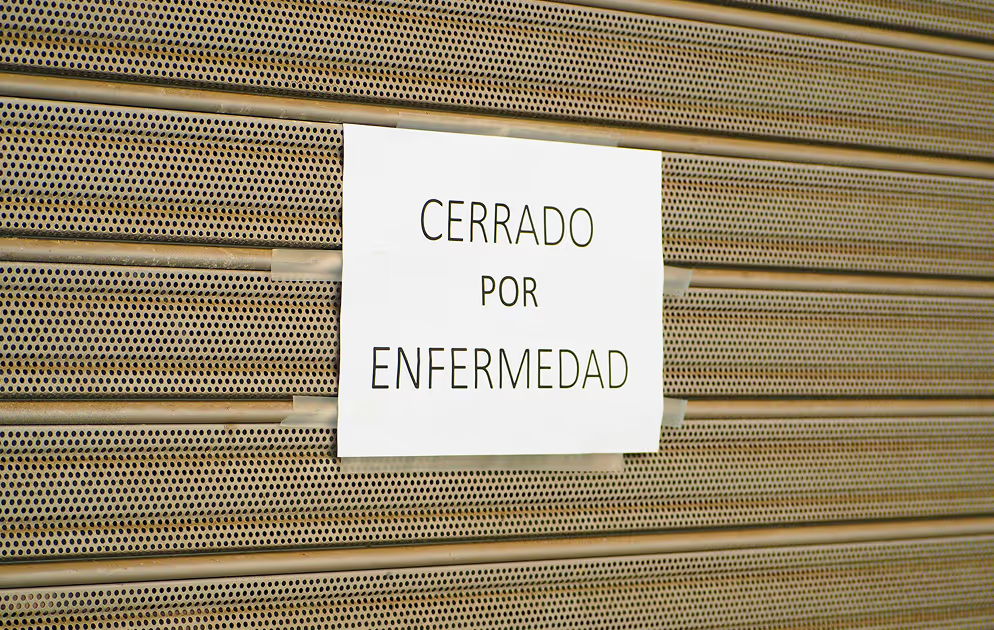
Although many expat communities are English-speaking, learning Spanish is the best way to integrate. A basic level of Spanish helps with everyday tasks and building relationships with your neighbours. Thankfully, you can easily find language classes for adults and newcomers.
Bureaucracy and Paperwork
You can't move abroad without understanding how to work through the local administrative system. Unfortunately, each country has its own, so what you know from the UK administrative side doesn't apply here. Can you navigate the different steps to plan your retirement in Spain alone? Yes, but it isn't easy and a lot of documentation and support will only be provided in Spanish. That's why many expats choose to hire a Spanish administrative specialist called a gestor. The gestor will handle Spanish paperwork, tax submissions, and any other official appointments on your behalf.
Registering for residency and local services
Once you arrive in Spain, you must complete several steps to finalise your residency.
First of all, you want to obtain the TIE (Tarjeta de Identidad de Extranjero). You will also need to register your address with the local town hall through the padrón, and update your details with the tax office when you become a tax resident.
Naturally, each one of these processes has its own appointment system and documentation checklist.
Banking
Most retirees open a Spanish bank account to manage daily expenses and pension transfers.
What do you need to open a Spanish bank account? Banks often request passports, NIE (Número de Identidad de Extranjero, the Spanish identification and tax number for foreigners) or TIE numbers, proof of address, and documentation showing your source of income.
Best Places to Retire in Spain
Where should you retire in Spain?
The first thing you want to do is to understand the different options you have.
The Costa del Sol is one of the most popular areas for Britons who want to retire in Spain. The region is ideal for those want want an active outdoor lifestyle, with plenty of sunshine and plenty of English-speaking support.
Most famous towns: Málaga, Marbella, Benalmádena, and Estepona
Further north, the Costa Blanca is best suited for those who prefer a quieter pace. The coastal setting is the main selling point for retirees who used to live in urban areas in the UK. Bonus point: despite the gorgeous setting, life in this region remains affordable.
Most famous towns:Alicante, Jávea, and Torrevieja
The Valencian Community is culturally rich without an overly high cost of living. So you get a similar buzz to some of the main tourist hubs in Spain without the price tag.
Famous towns: Valencia and Castellón
If you are set on warm weather throughout the year, the subtropical climate of the Canary Islands is a perfect choice.
Best cities here: Tenerife, Lanzarote, and Gran Canaria, all with modern infrastructure and access to international airports.
Lastly, for a tranquil lifestyle with more traditional Spanish values, inland and rural areas are popular. You will need Spanish language skills and your own car if you pick this region.
Best areas: Murcia, Andalusia, and Extremadura
If you would like to find out more about the best places to retire in Spain, a trip down to the various regions and cities recommended will be the best approach.
FAQs for Spain Retirement
What are the eligibility criteria for a Spanish non lucrative residence visa?
To qualify, applicants must show an income of at least €28,800 per year for a single person, hold comprehensive private healthcare insurance with no co-payments, provide a clean criminal record certificate, pass a medical check, and prove accommodation in Spain.
How much does it cost to live in Spain as a retiree?
The cost of living varies by region, but many retirees find everyday essentials cheaper than in the UK.
Do UK retirees pay taxes in Spain?
Yes, if you spend more than 183 days a year in Spain or your centre of vital interests is there. The UK-Spain double taxation agreement ensures you don’t have to pay tax twice.
Can I use my UK state pension in Spain?
Yes. Your pension can be paid directly to you in Spain and continues to receive annual uprating. Payments can be sent to a UK or Spanish bank account. As the pension is classed as an exportable UK social security benefit, this means you remain entitled to receive it even after becoming a Spanish resident.
Can I access Spanish public healthcare as a UK retiree?
You can usually access public healthcare through the S1 scheme. You must register the S1 with the Spanish authorities to use the public system. Retirees who have not yet reached State Pension age must hold private healthcare insurance until eligible for S1 or local coverage.
Do I need to learn Spanish to live comfortably?
Not necessarily, depending on the areas you choose to live in. However, this will help tremendously with integration in your local community.
How long can I stay in Spain without becoming a resident?
UK citizens can stay up to 90 days in any 180-day period without a visa. Longer stays require an appropriate residency visa.
Can I buy a property without Spain residency?
Yes. UK nationals can purchase property in Spain without holding residency. However, buying property does not provide residency rights. If you plan to live in Spain full time, you still need an appropriate visa.
Conclusion - Retiring in Spain
Spain remains a top retirement choice for many UK citizens as a direct result of its lifestyle and financial advantages. However, it's important to appreciate that in a post-Brexit environment, Britons need to prepare to meet the tax, healthcare, and visa requirements.
There's no denying that with proper planning and realistic financial strategy, UK retirees can enjoy all the benefits of Spain retirement life.
It is important however that you take into consideration all the financial aspects of becoming an expatriate, and in particular that of your pension arrangements.
If you are retiring to Spain it is possible to have your UK pension transferred overseas.
This can be done using a QROPS wherein you will have access to the proceeds in your currency of choice as opposed to being limited Sterling. In the event of your death, the use of a QROPS in Spain will enable you to pass what remains of your pension to your ‘loved ones’ as opposed to leaving it in the UK where it would be more heavily taxed.
Another possible and very popular vehicle to transfer your UK pension abroad is international SIPPs. Please get in touch if you want to find out more about transferring your UK pension to Spain.

Retiring in Spain has long been a goal for many British people, from those in their sixties to long-term expats currently working across the country who want to remain permanently.

Managing your investments after moving abroad presents a mix of challenges and opportunities.
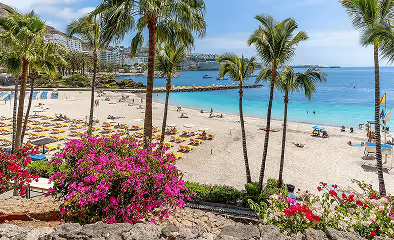
Has the Spanish Golden Visa program been abolished?

How we structure our pension investments can make the difference between a long, comfortable retirement and a daily struggle to maintain the lifestyle we want.

Put an income generation strategy in place before it’s too late to change anything!

Full transparency on fees and charges is a requirement for all parties involved in pension transfers.

There have been additional changes to the rules concerning the Lifetime Allowance.

A focus on retirement planning for the New Year.

Divorce can be a challenging process, even under the best circumstances.

No one anticipated the removal of the LTA in the Budget, despite the rumours that had been circulating.

The appeal of a 'non-resident SIPP,' also referred to as an International SIPP.

Cost of living in Spain: What's it like for the 284,000 British people that currently live and work there?


